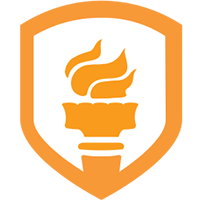Dr. Eileen O’Connor spent her first year after college teaching on a Native American reservation in Montana serving as a 4th grade teacher and as the science teacher for 4th through 8th grades. She then returned to her science roots, working as a chemist for both government and industry, joining IBM when they began a chemical division in 1981 then later moving into IBM’s regular product development, marketing and sales functions. In the 1990s, while pursuing her doctorate at the University at Albany, she taught at College of St. Rose in the chemistry department and in the instructional technology area. Upon graduation from the University at Albany she became a faculty member at SUNY Oneonta; served as the Assistant Director at Rensselaer Polytechnic Institute in their K-12 outreach effort; provided K12 and professional development programs to urban school districts in Albany and Troy New York; and taught as part-time faculty member for 10 years at the University at Albany (overlapping with time at ESC). Since 2004, she has worked for Empire State College School of Graduate Studies in various education, science education, and instructional technology teaching venues.
Dr. O’Connor particularly envisions her role as an online teacher as being the creator of the community socially-networked experiences that she threads through her 100% online courses at times engaging students in synchronous meetings and virtual reality environments. So in addition to using her STEM (science, technology, engineering, mathematics) background in courses that create an interdisciplinary perspective, she also creates virtual-reality spaces for herself and her courses and guides many MALET students to creating their own immersive 3-D environments. Recently she has begun the Institute of New Paradigms a nascent think tank dedicated to reaching beyond the physical and even online constraints to create virtual reality 3-D experiences that bring in speakers, visitors, and explorations that move well beyond brick-and-mortar, learning management systems, and static teaching models. Many students, alumni and other educators are joining her there to help frame, understand, and envision the next steps in human learning and communication.
Degrees
- B.A. in Biology (major) / Chemistry (minor) from The College of New Rochelle
- M.S. in Environmental Health Science and Engineering from Polytechnic University of New York
- Ph.D. in Education / Science Education / Instructional Technology from University at Albany - State University of New York
Publications
- O’Connor, E.A. & Domingo, J. (2020) Book: Cognitive and Affective Perspectives on Immersive Technology in Education; Chapter being contributed: Designing for Immersion: Mindful of Cognition, Motivation and Imagination; Published by: IGI Global
- Dolphin, S. & O’Connor, E.A. (November 2019 - New Orleans). Enhancing Inclusion and Access through a Virtual Reality, Graduate School Residency. . In Proceedings of E-Learn: World Conference on E-Learning in Corporate, Government, Healthcare, and Higher Education Chesapeake, VA: Association for the Advancement of Computing in Education (AACE).
- O'Connor, E. A. (2018). Developing Community and Building Knowledge Online Using a Virtual Reality Environment and Student-Created Videos. Journal of Educational Technology Systems, 46(3), 343-362.
- Oconnor, E. & Worman, T. (2018). Introducing K12 Teachers to Emerging Technologies within an Online Graduate Course that Used an Immersive Virtual Reality Environment. In Proceedings of E-Learn: World Conference on E-Learning in Corporate, Government, Healthcare, and Higher Education 2018 (pp. 594-604). Chesapeake, VA: Association for the Advancement of Computing in Education (AACE)
- O’Connor, E. A. & Domingo, J. (2017). A Practical Guide, with Theoretical Underpinnings, for Creating Effective Virtual Reality Learning Environments. Journal of Educational Technology Systems. 45(3), 343 – 364
- O’Connor, E.A., McDonald, F., & Ruggiero, M. Scaffolding. (2015) Complex Learning: Integrating 21st Century Thinking, Emerging Technologies, and Dynamic Design and Assessment to Expand Learning and Communication Opportunities. Journal of Educational Technology Systems. 43(2), 199-226.
- O’Connor, E.A. & McQuigge, A. (2014). Exploring badging for peer review, extended learning and evaluation, and reflective/critical feedback within an online graduate course. Journal of Educational Technology Systems, 42(2), 87-105.
